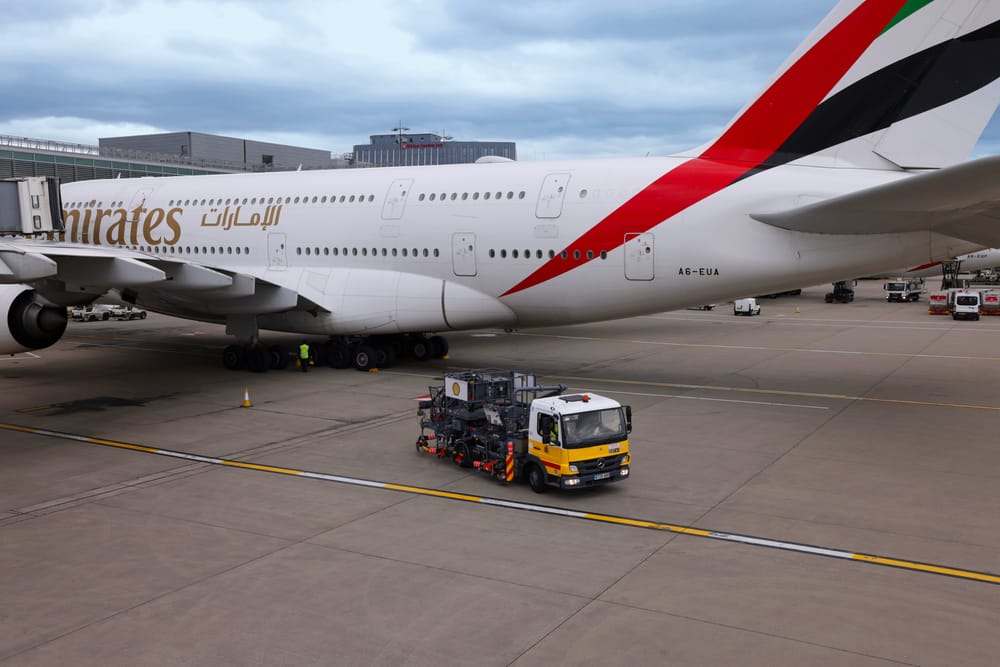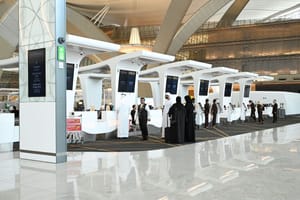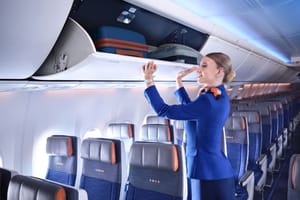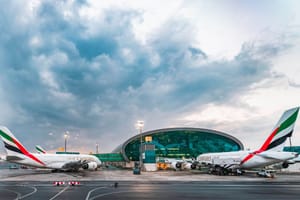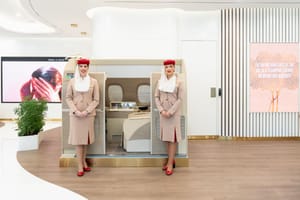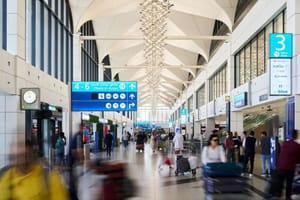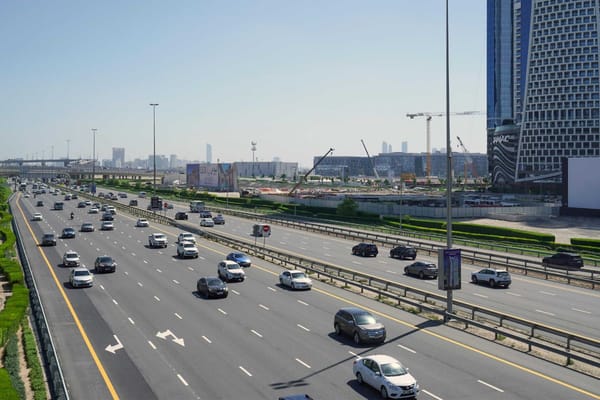Emirates has taken delivery of sustainable aviation fuel (SAF) from Shell Aviation at London Heathrow Airport.
Over 3,000 metric tonnes of neat SAF, blended with conventional jet fuel, will be supplied into the fuelling infrastructure network of the airport until the end of summer 2024.
This is the first time the airline will be using SAF to power some of its flights at London Heathrow and represents the largest volume of SAF it has purchased to date. Emirates is participating in London Heathrow’s SAF Incentive Programme, which ensures its affordability and accessibility for airlines operating at the airport.
The airline will be accounting for, tracking and tracing the delivery of SAF at London Heathrow as well as its sustainability attributes through robust reporting methodologies. The SAF that Emirates has purchased from Shell Aviation will be safely dropped into existing airport fuelling infrastructure and aircraft jet engines. In its neat form, SAF can reduce lifecycle carbon emissions by up to 80% compared to using conventional jet fuel.
Adel Al Redha, Deputy President and Chief Operations Officer of Emirates Airline, expressed enthusiasm for the collaboration with Shell Aviation and London Heathrow Airport in advancing their Sustainable Aviation Fuel (SAF) journey. The initiative at London Heathrow supports the momentum of the SAF market, making it more commercially viable for airlines like Emirates. Al Redha emphasized Emirates' commitment to exploring opportunities to increase SAF usage within their network while undertaking various measures to reduce emissions, including optimizing flight operations.
Raman Ojha, President of Shell Aviation, highlighted the continuation of their successful collaboration with Emirates to supply SAF, aiming to decarbonize flights out of the UK. This partnership signifies progress in expanding Shell Aviation's global SAF supply network, with a goal to work alongside forward-thinking aviation industry players to make SAF accessible worldwide.
Ross Baker, Chief Commercial Officer of Heathrow Airport, expressed excitement in supporting Emirates through Heathrow's Sustainable Aviation Fuel (SAF) scheme, emphasizing the importance of SAF in decarbonizing long-haul flights. With commitments from airlines like Emirates, Heathrow expects to support the use of up to 155,000 tonnes of SAF this year. Baker stressed the need to scale up SAF production in the UK to benefit from job creation, economic growth, and energy security as more airlines transition to sustainable fuels.
Launched in 2022, London Heathrow’s SAF Incentive is pioneering, aiming to narrow the price gap between conventional jet fuel and SAF by around 50%. Such initiatives aim to spur supportive government policies, enhancing the UK’s competitiveness by attracting investment in clean energy endeavors like SAF production.
Emirates' SAF strategy involves utilizing SAF operationally wherever available in its network, sharing emissions costs with corporate customers or freight forwarders where feasible, and collaborating on longer-term SAF projects with reputable partners. The airline also supports SAF ventures in the UAE with the potential to supply Sustainable Aviation Fuel at its hub.
Emirates has actively integrated SAF into its operations, with flights from Amsterdam, Paris, Lyon, and Oslo already using SAF. Additionally, the airline collaborated with Shell Aviation to introduce SAF into Dubai Airport's fuelling systems for the first time. Plans are in place to work with local partners at Singapore Changi Airport for SAF supply. Emirates has also joined the Solent Cluster in the UK, participating in efforts to establish a SAF plant capable of producing up to 200,000 tonnes per year by 2032.
Emirates has a longstanding presence in the UK since 1987, operating to seven gateways with 131 weekly flights. These include multiple daily services to London Heathrow, Gatwick, Stansted, Manchester, Birmingham, Newcastle, and Glasgow, demonstrating the airline's commitment to serving the UK market.
News Source: Dubai Media Office
